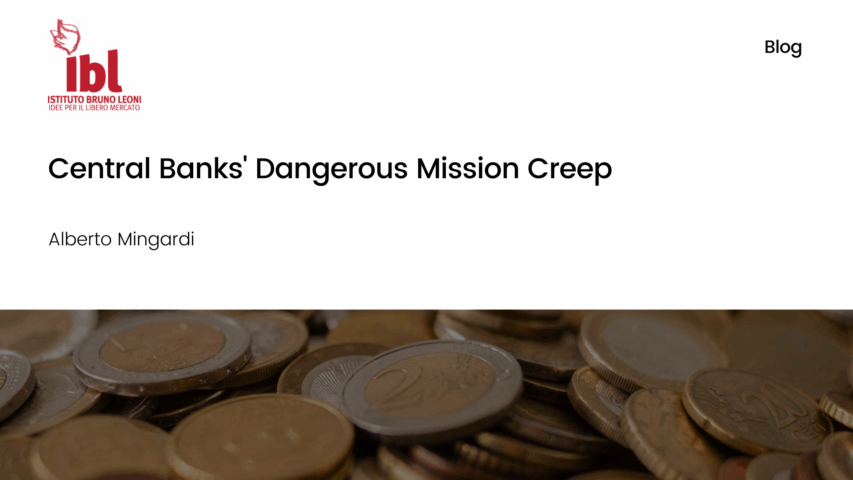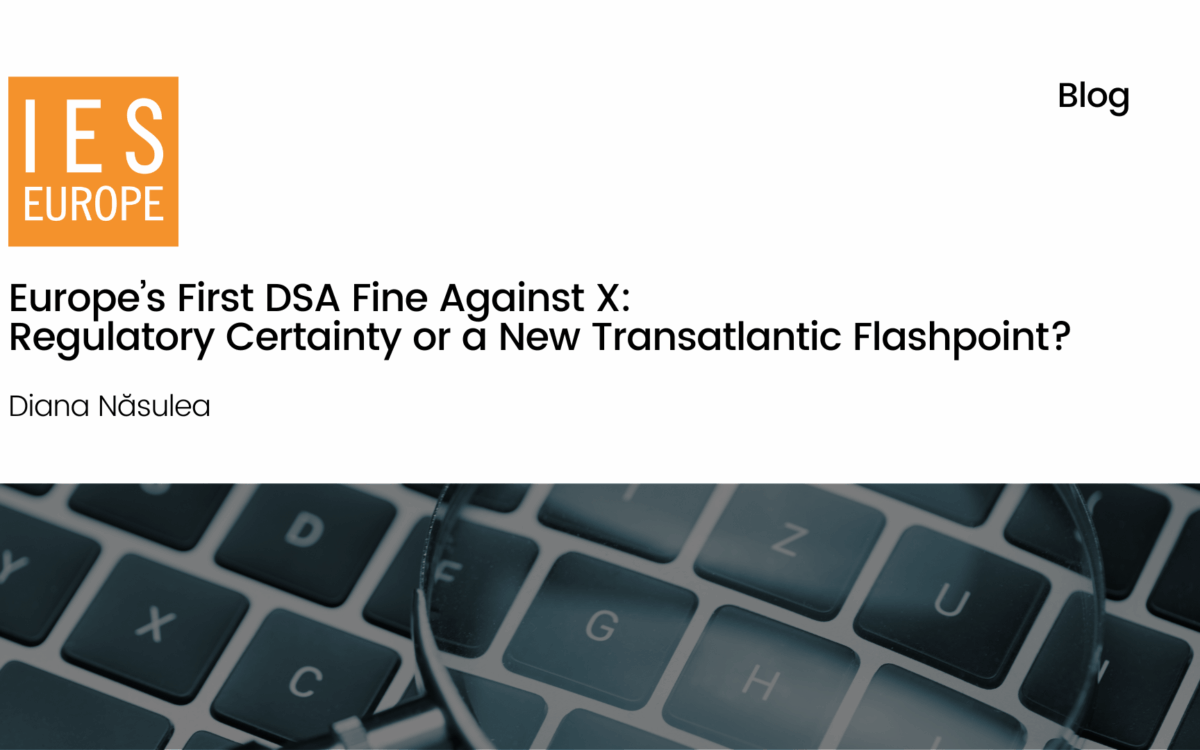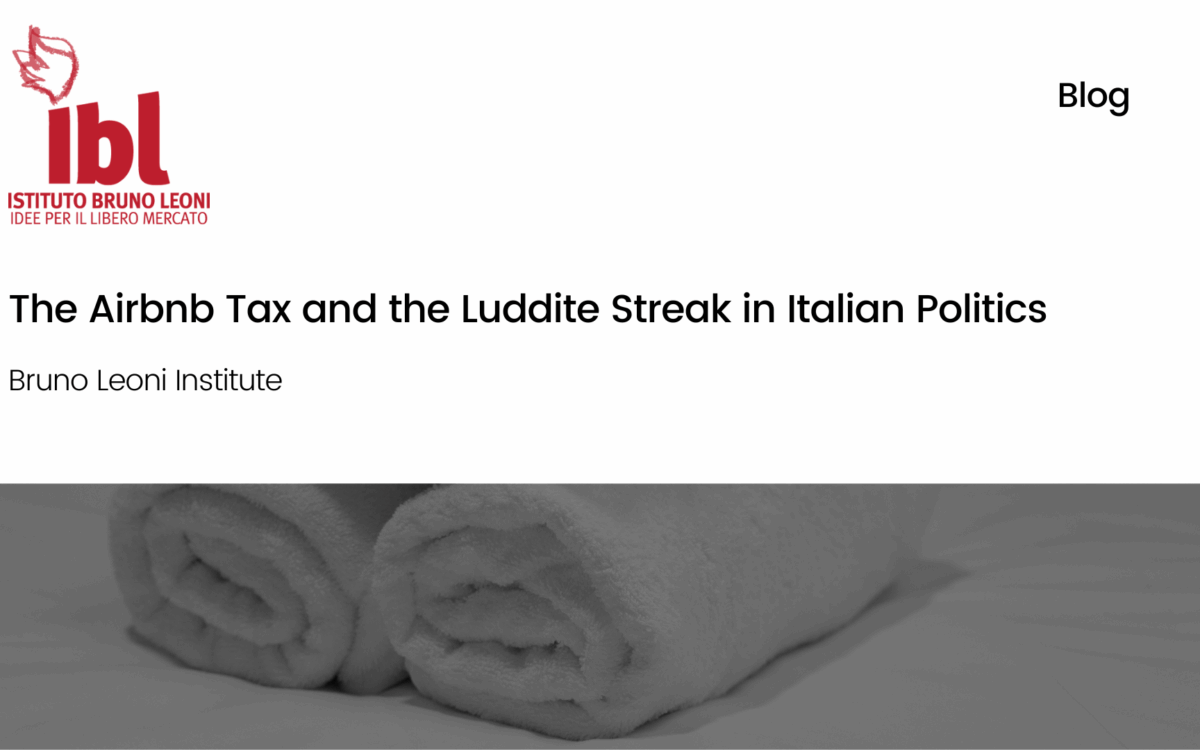Central Banks’ Dangerous Mission Creep

Central Banks' Dangerous Mission Creep
Alberto Mingardi // 26 June 2025
The more tasks the Federal Reserve takes on, the more difficult it will be to maintain its independence. Especially if, in addition to ‘exercising powers that belong to the Treasury Department’, the central bank deals with ‘social problems’ such as climate change or inclusion, to which there are various policy responses but no technical, neutral approach. Kevin Warsh’s speech at the last meeting of the Group of Thirty on 25 April was widely reported in the Financial Times and the Wall Street Journal. Warsh, now a visiting fellow at Stanford’s Hoover Institution, served on the Federal Reserve Board from 2006 to 2011, during the height of the financial crisis. In recent months, he has been written about as the most likely successor to the current governor, Jay Powell, should Donald Trump decide to remove him from office early (otherwise, Powell’s term will expire in May 2026).
The new investment plan permits Germany to take on new debt to finance expenditure on defence, cybersecurity, intelligence, and civil protection exceeding 1 per cent of the GDP, while earmarking €500 billion ($540 billion) for its special infrastructure investment fund and €100 billion ($109 billion) for climate initiatives.
The possible attack on the Fed scares Powell's colleagues in other countries. Trump has already reduced the room to manoeuvre for some independent authorities in a bid to bring them under executive control. The Fed, however, is a different story. American monetary policy is not only American; it affects the actions of all issuing institutions. The very independence of central banks over the past fifty years is a story that begins overseas. The real independent central bank was the Bundesbank, but its German rigour found few imitators. Beyond the formal aspects, it was Paul Volcker’s vigorous Fed chairmanship that gave courage to his colleagues around the world, making the separation between central banking and politics a value that was unanimously shared at least in words.
Volcker’s very name reminds us that independence is not an attribute of the role but a consequence of how one interprets it. Since the 2007–2008 financial crisis, it is difficult to find examples of central bankers insensitive to the sirens of politics, which has since multiplied its demands: the experience of quantitative easing consolidated the view that issuing institutions were essentially omnipotent. Troubled governments knocked on the doors of central banks, and they were opened to them. The Fed, like the ECB, but also our Bankitalia, guard the highest quality human capital available to the public sphere. Smart people are often also ambitious and almost always conceited. Being offered new problems to solve on a silver platter has whetted their pride.
It is just that the more the central banks substitute themselves for politics, the less likely they are to claim to be immune to its influence. The ‘vanity’ of Fed and ECB presidents has done the rest. Since Alan Greenspan, the central banker has become a public figure. Mark Carney’s descent into the field is just the latest case that shows how the spectacularisation of the role consigns technicians to politics, in a position that no one can imagine is neutral anymore.
Warsh’s considerations are not ad personam, and not only because his speech was replacing that of Carney, the former chairman of the Group of Thirty, who was busy with other matters. His first call was for epidemic humility, an expression dear to observers such as Jeffrey Friedman and Wladimir Kraus (authors of an important, albeit unfortunate, book on the financial crisis), as well as in Italy to Antonio Foglia, for whom central bankers tend to presume too much as to their ability to fix the world’s ills.
In the field of central banking, where the rhetorical standard oscillates between absolute impenetrability and the reframing of clichés, Warsh’s speech is a small masterpiece of critical reasoning on institutions: that in order to generate trust, central banks must deserve it. This means that they must first of all know their limits – the limits imposed by norms, which should come ‘from the common sense of leaders’ and should restrain ‘the inherent tendency to expand one’s footprint’ and recognise the inevitable limits of technical expertise. Having information that helps to better read a certain slice of reality does not mean knowing all the variables.
The great inflation of recent years, Warsh explains, has to be placed in a framework of ‘intellectual errors’. Central banks lost sight of their traditional objective (monetary stability) because, while pursuing other goals, they forgot that monetary policy is first and foremost the governance of money and claimed that inflation was due ‘to Putin and the pandemic rather than to increased government spending and money in circulation’. A mischievous observer might suggest that Warsh’s speech was intended to offer reassurance about his personal autonomy from the administration, or that it was an elegant way of making it clear to Trump that he was not interested in the post. The second explanation is less improbable than the first: familiar circumstances make the New York economist the type who can always keep his resignation letter in his pocket. ‘Judge the products and not the authors’, Karl Popper once warned – least of all the authors’ insights. Specialisation strengthens institutions and guarantees their freedom. The more roles they try to play, the less they can escape the influence of politics. Currency is there to enable trade, not to save the world. Whoever is the new Fed chairman, we would be lucky if he thinks like this.
Alberto Mingardi is the Director General of Istituto Bruno Leoni.
EPICENTER publications and contributions from our member think tanks are designed to promote the discussion of economic issues and the role of markets in solving economic and social problems. As with all EPICENTER publications, the views expressed here are those of the author and not EPICENTER or its member think tanks (which have no corporate view).



